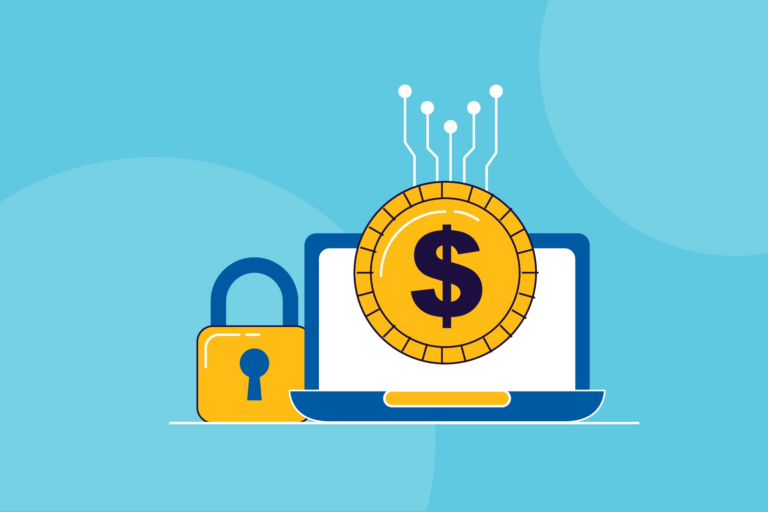Why is Fintech Compliance So Important?

- Ivan Smirnov, at Content Creator
- 26.04.2024 09:00 am #compliance
You run a fintech startup and are eager to get your product to market. But hold up — you can't cut corners when it comes to compliance. Staying on the right side of regulations may feel like a total drag, but failing to take compliance seriously puts your entire business at risk. Get caught mishandling customer information and you'll face massive fines, lawsuits, and irreparable damage to your brand.
In this article, we'll break down exactly why fintech compliance matters and how to make it work for your business, not against it. We'll look at best practices for safeguarding data and help you build a bulletproof compliance strategy tailored to your needs. Stick with us and you'll gain the insight you need to launch your fintech startup without compromising on compliance or your vision. Let's dive in.
Understanding the Importance of Fintech Compliance
Data Protection
In fintech, how you handle customer data is crucial. You need robust data protection policies and security measures in place to keep sensitive financial information private. Things like encrypting data, restricting access, and continuous monitoring are a must. Customers won't trust you with their financial data if you can't guarantee the protection of it.
Regulations
The finance industry is heavily regulated to protect consumers, and fintechs are no exception. Make sure you understand frameworks and regulations like SOC 1 and PCI DSS for data security, KYC/AML for verifying customer identities, and others. Stay on top of new regulations as they emerge. Non-compliance can lead to legal trouble, fines, and damage to your reputation.
Cybersecurity
Fintechs are a prime target for cybercriminals looking to steal money and personal data. You need advanced cybersecurity protections like firewalls, antivirus software, employee training, and regular risk assessments. Monitor networks and accounts constantly for signs of hacking or fraud. A major cyber attack could cripple your business if you're not proactively defending against threats.
Key Compliance Frameworks and Regulations for Fintech Companies
Fintech companies must comply with a range of regulations and frameworks, including anti-money laundering (AML) laws, know-your-customer (KYC) rules, and data security frameworks and regulations (like SOC 1, PCI DSS, GDPR, etc.). These requirements aim to prevent financial crimes, protect consumer data, and ensure fair treatment of customers. Some common data security frameworks you need to know for your fintech startup are:
SOC 1
SOC 1 (System and Organization Controls 1) is a data security framework focused on financial reporting. Developed by the American Institute of Certified Public Accountants (AICPA), it assesses the internal controls at service organizations impacting user entities' financial statement accuracy. SOC 1 reports help ensure that financial data managed by third parties are handled securely and processed correctly, providing assurance and compliance validation.
PCI DSS
The Payment Card Industry Data Security Standard (PCI DSS) protects customer payment card data. Any company that accepts card payments must comply with PCI DSS. It requires maintaining a secure network, protecting cardholder data, regularly monitoring and testing networks, and maintaining a policy that addresses information security. If you process card payments, PCI compliance is a must.
GDPR
The General Data Protection Regulation protects people's personal data. It applies to companies that collect or process EU citizens' personal information. That means fintech companies need to get consent before collecting data, allow people to access their data, and keep data secure. If you have EU customers, GDPR compliance is non-negotiable.
Best Practices for Maintaining Fintech Compliance
As a fintech company, compliance should be at the top of your priorities. Failure to comply with regulations and frameworks like GDPR or PCI DSS can result not only in hefty fines but damage to your reputation and customer trust as well.
Establish a Compliance Culture
Fostering a strong compliance culture within the organization is crucial. This involves promoting ethical values, providing clear policies and procedures, and ensuring that compliance is a priority at all levels of the company.
Invest in Compliance Technology
Leveraging compliance technology solutions, such as automated monitoring and reporting tools, can help fintech companies streamline their compliance efforts, reduce manual processes, and enhance efficiency in identifying and mitigating risks.
Conduct Regular Training and Education
Providing regular training and education to employees on compliance requirements, best practices, and emerging trends is essential. This helps ensure that everyone within the organization understands their roles and responsibilities in maintaining compliance.
Is Your Fintech Startup Compliant?
At the end of the day, compliance might not seem like the most exciting part of working at a fintech startup. But, your customers are counting on you to keep their data safe and avoid regulatory headaches. We get that it's tempting to cut corners, but don't risk your company's future for some short-term convenience. Invest the time and resources to get compliant right from the start. You'll be thankful when audits and investigations roll around.

























